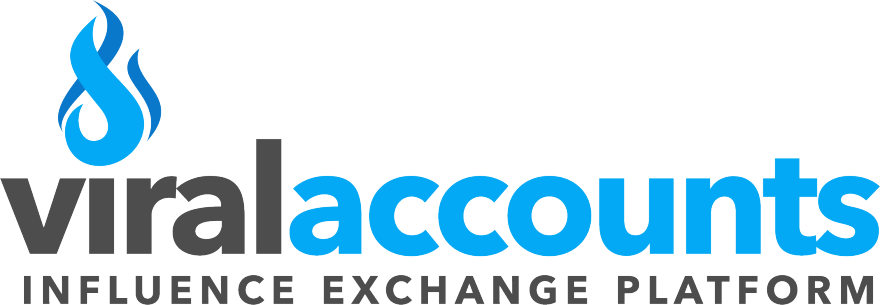Interesting Facts
When trying to understand the breadth of Donald Trump’s business interests, it quickly becomes clear that the scale is vast and somewhat complex. He doesn’t simply own a handful of companies but presides over a sprawling empire with many layers and various business sectors. At the heart of this network lies the Trump Organization, a holding company that functions as the umbrella entity encompassing a wide range of businesses.
The Trump Organization itself is known to hold approximately 250 subsidiaries and affiliated companies. These are not just minor ventures; they cover significant arenas such as real estate development, hospitality, leasing and licensing deals, golf courses, resorts, and even branded consumer products. Each of these subsidiaries operates under the broad Trump brand, which is a powerful and recognizable name across many industries.
This complex structure means that when asking, “How many businesses does Donald Trump own?” the answer isn’t straightforward because the lines between ownership, control, and branding blur across the empire. Rather than owning each business outright in a traditional, simple sense, Trump’s network includes entities where he holds substantial control or interest. This can range from direct ownership to licensing agreements, partnerships, and other kinds of arrangements that still carry the Trump branding prominently.
The sheer size — with around 250 corporate entities connected to his core company — reflects a diversified portfolio. Over the decades, Trump has expanded beyond just real estate into sectors that capitalize on his name and reputation, such as branded residential buildings, hotels in major cities, golf resorts spanning several countries, and even ventures into lifestyle products. Sometimes it may feel like every time you hear “Trump” mentioned, it refers to yet another branch operating somewhere in the business world.
Interested in Exploring Extensive Business Networks?
Moreover, the global nature of this web means that Trump’s businesses aren’t just confined within the United States. Internationally, there are properties, licensing partnerships, and affiliated companies that fall within this vast network. This worldwide footprint further complicates pinning down a precise number of businesses, as different countries have varying corporate structures and reporting standards, which can make details less transparent.
While lists and estimates exist from investigative reporting and company disclosures, no publicly available, fully detailed ledger breaks down every entity. This opacity is partly due to the organizational structure’s intentionally multi-layered design: a common strategy for large business empires to manage risk, regulatory complexities, and financial dealings more flexibly.
Also worth noting is that over time, businesses are bought, sold, restructured, or closed, altering the exact count. New ventures might appear while others are spun off, so the number remains fluid. But even amid such fluctuations, the snapshot of roughly 250 subsidiaries tied to the Trump Organization offers a strong indication of the scale.
Understanding this sheds light on how modern billionaires like Trump often wield influence through networks of companies rather than single, easily identifiable businesses. It’s a testament to how branding, diversification, and layered ownership come together in forming a business empire today.
Looking deeper into some of the major sectors under the Trump Organization reveals how varied the business interests really are. Real estate remains at the core, with Trump’s name gracing numerous luxury residential towers, office buildings, and commercial properties. These assets stretch across prime locations, from Manhattan’s bustling avenues to emerging markets abroad. Each property reflects a carefully crafted brand image designed to attract high-end clientele who associate the Trump name with luxury and exclusivity.
Hospitality is another pillar within the empire. The portfolio includes iconic hotels located in key urban centers and tourist destinations. These establishments not only offer lodging but also incorporate premium dining, conferencing facilities, and exclusive events, making them popular with business travelers and leisure guests alike. The hospitality ventures benefit greatly from the name recognition and luxury association that the brand commands.
Beyond traditional real estate and hospitality, Trump’s golf courses stand out as a significant segment. Spread across the United States and internationally, these sprawling resorts combine sport, leisure, and entertainment. Often situated in picturesque locations, the golf properties offer memberships, tournaments, and a lifestyle experience that appeals to an affluent clientele. This segment also illustrates how the brand extends beyond buildings and tangible assets into experiential offerings.
Licensing deals further complicate the picture. Many businesses operating under the Trump name do so through licensing arrangements rather than direct ownership. This approach allows the brand to expand into diverse product categories—such as home furnishings, apparel, and even beverages—without heavy operational involvement. Licensing generates steady revenue streams and leverages the brand’s cultural prominence.
What’s intriguing is how this layered structure enables the Trump Organization to adapt and evolve. For example, if market conditions shift unfavorably in one sector, other areas might absorb the shock or even thrive. This diversification minimizes risks and allows the empire to maintain a degree of stability despite economic ups and downs.
Still, the downside of this complexity lies in transparency. Critics and analysts often highlight how the multi-tiered arrangement can obscure financial details and complicate legal scrutiny. This opacity has sparked considerable debate, especially given Trump’s political career and the scrutiny that comes with it. For outsiders trying to piece together the scope of his holdings, it can feel like navigating a labyrinth.
Another aspect worth mentioning is the role of family members and close associates in managing parts of the enterprise. Over time, different relatives have taken leadership roles within various segments, helping to oversee operations and maintain continuity. This familial involvement reinforces the private nature of the business and helps preserve the underlying brand ethos.
The way Donald Trump’s business empire has evolved also reflects broader trends among high-net-worth entrepreneurs. Rather than focusing on a single business model, successful figures often build vast, interconnected networks. These can include a mix of wholly owned companies, joint ventures, licensing agreements, and affiliated entities. The Trump Organization represents one of the more publicized examples of this strategy, partly because of the brand’s high visibility.
To put this into perspective, many mega-entrepreneurs in the real estate and hospitality sectors employ similar tactics to manage risk and scale efficiently. Some choose to spread interests geographically and across industries, just as Trump has done. This allows for capturing diverse revenue streams and adapting more quickly to changing market demands.
For anyone curious about the precise number of businesses tied to Trump at any given time, the answer always comes back to “complex” and “changing.” It’s not a matter of simply ticking off a list but understanding a dynamic system. Behind the scenes, legal teams, accountants, and managers work continuously to maintain the structure and capitalize on emerging opportunities.
In conclusion, Donald Trump’s business empire is a sprawling and intricate network managed primarily through the Trump Organization, which directly controls or influences around 250 subsidiaries and affiliated companies. This web spans multiple industries, countries, and product lines, reflecting a strategy built on diversification, branding, and layered ownership. The exact number of businesses fluctuates over time due to acquisitions, sales, and restructuring, but the scale remains undeniably vast. Understanding this complexity offers valuable insight into how modern billionaires build, sustain, and wield influence across the business world—not as owners of single companies, but as leaders of broad, interconnected empires.
For those interested in the broader context of social media and business, platforms like ViralAccounts’ unique approach demonstrates how digital branding complements traditional business empires today.
What is the approximate number of subsidiaries under the Trump Organization?
The Trump Organization holds approximately 250 subsidiaries and affiliated companies, covering diverse sectors such as real estate, hospitality, and licensing.
Does Donald Trump directly own all his businesses?
No, Donald Trump’s business empire includes direct ownership, licensing agreements, partnerships, and other arrangements where he holds substantial control or interest.
Are Trump’s businesses only in the United States?
No, Trump’s business empire spans globally, including properties, licensing partnerships, and affiliated companies in various countries.

